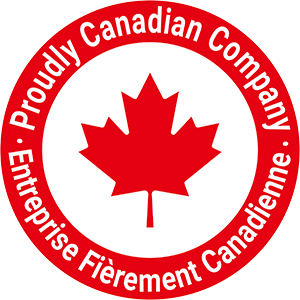Leading Gen Z: Navigating Tomorrow’s Workplace
By Admin |
5.2 min read

Introduction:
The workforce landscape is swiftly evolving, and at the forefront of this change is Generation Z. Born into a world of technical advancements, Gen Z brings with them a fresh perspective and a set of expectations that demand a reimagining of traditional management styles. Gen Z refers to anyone born between 1996 and 2010. They are the largest generation, accounting nearly a third of the global population.
In this article, we explore the nuances of working with Gen Z and how leaders can adapt to ensure a productive workplace environment.
Why is the Gen Z workforce so crucial?
As the largest generational cohort, comprising nearly a third of the global population, Gen Z holds significant sway in shaping the future of the workforce. Their unique characteristics and experiences set them apart from previous generations, making it imperative for businesses to understand and accommodate their needs.
To effectively engage and retain Gen Z talent, it’s essential to comprehend their workplace expectations. From valuing inclusion to prioritizing personal development, Gen Z brings a distinct set of priorities to the table, necessitating a shift in management strategies.
1) Harnessing Diversity and Inclusion:
Harnessing diversity and inclusion are not just a moral imperative; it’s a strategic advantage for organizations looking to thrive in today’s complex and competitive landscape. Generation Z, with its diverse backgrounds, perspectives, and experiences, places a premium on inclusivity and values environments where every individual feels respected, valued, and empowered to contribute their unique insights and talents.
- Cultivate a Culture of Belonging: Foster an inclusive culture where every employee feels a sense of belonging, regardless of their background, identity, or perspective. Celebrate diversity and create opportunities for employees to connect, collaborate, and learn from one another.
2) Facilitating Open Communication:
Facilitating open communication is not only essential for fostering a positive work environment but is also a cornerstone for building trust, collaboration, and innovation within teams. For Generation Z, who values meaningful connections and authenticity, open communication is paramount in ensuring they feel heard, respected, and valued in the workplace.
- Establish a Culture of Transparency: Encourage transparency at all levels of the organization by openly sharing information, updates, and decisions. When employees feel informed about the company’s goals, challenges, and progress, they are more likely to be engaged and invested in their work. Schedule regular team meetings or town halls where you can provide updates on company initiatives, address concerns, and solicit feedback from employees. Transparency builds trust and empowers employees to contribute to the organization’s success.
3) Embracing Flexibility:
Gen Z values flexibility like never before. For them, work isn’t just a place to clock in and out—it’s an integral part of their lives that should harmonize with their personal aspirations and commitments.
For Gen Z, flexible work arrangements offer a sense of autonomy and control over their schedules, allowing them to balance their professional responsibilities with personal pursuits. Whether it’s pursuing a passion project, attending a family event, or simply enjoying some downtime, the ability to adapt their work hours and location empowers Gen Z to live life on their terms.
So, how can organizations cater to Gen Z’s craving for flexibility while also accommodating the needs of older generations?
- Embrace a Hybrid Model: Consider adopting a hybrid work model that allows employees to work both remotely and in the office. This approach offers the best of both worlds, providing flexibility for Gen Z while maintaining a sense of structure and collaboration for older generations who may prefer the office environment.
- Set Clear Expectations: Clearly communicate expectations regarding work hours, availability, and communication channels. Establishing guidelines ensures that all employees, regardless of generation, understand what is expected of them while working flexibly.
- Leverage Technology: Invest in technology that facilitates seamless communication and collaboration across remote and in-office teams. From video conferencing tools to project management platforms, technology can bridge the gap between different work arrangements and foster collaboration.

Leveraging Predictive Index for Effective Leadership
Integrating Predictive Index, delivered by elite partner Predictive Success, into leadership strategies not only empowers organizations to better engage with Gen Z employees but also fosters a culture of collaboration and innovation. Let’s delve deeper into how Predictive Index tools can further support managers in effectively leading newer generations in the workplace.
-
Understanding Diverse Behavioral Profiles:
Predictive Index assessments offer invaluable insights into the diverse behavioral profiles. By deciphering individual’s behavioral drives, preferences, and motivators, leaders can tailor their management approach to capitalize on the unique strengths and perspectives of each team member. Whether it’s leveraging a Gen Z employee’s natural inclination towards autonomy or their collaborative spirit, Predictive Index tool enables leaders to build inclusive teams that harness the full spectrum of talent.
-
Custom Reports: Management Strategy Guide
The Predictive Index, delivered by elite partner Predictive Success, offers a custom report called the Management Strategy Guide. This report empowers managers to customize their management approach for each employee based on their unique behavioral needs. By utilizing these custom reports, leaders can ensure that they are catering their management strategies to the individual strengths and preferences of each team member, ultimately fostering a more productive and engaged workforce.
Conclusion:
As we journey into the future of work, it’s evident that leadership styles must evolve to meet the changing needs of the workforce, particularly with the rise of Generation Z. This diverse and dynamic generation brings with it a fresh perspective and a set of expectations that demand a reimagining of traditional management approaches. Tools like Predictive Index offer invaluable insights into team dynamics, allowing leaders to tailor their approach and optimize workforce performance. With resources such as the Management Strategy Guide, leaders can customize management styles to align with individual strengths and preferences, fostering a more productive and engaged workforce.
As we navigate the complexities of the modern workplace, it’s essential to embrace a new era of leadership—one that prioritizes adaptability, inclusivity, and innovation.
About Predictive Success
Predictive Success empowers leaders to optimize workforce performance through proven talent management methodologies, high-performing team-building technology, and collected employee or potential candidate data. To learn more about how you can work with our team, please contact us today.
Related Blogs
How to Decide Who to Layoff?
How to Decide Who to Layoff? A Strategic Guide Powered by The Predictive Index In uncertain economic climates, tough decisions often become necessary for business continuity. One of the most challenging decisions any organization faces
HR Risk Management – Full Guide
HR Risk Management: A Full Guide with The Predictive Index Advantage In today’s volatile business environment, human capital remains one of the greatest assets—and one of the biggest risks. Organizations are navigating an increasingly complex
9 Tips for Hiring the Best Salesperson
9 Tips for Hiring the Best Salesperson (Backed by The Predictive Index) Hiring the right salesperson can feel like trying to find a needle in a haystack. Sales is a high-stakes role where the right



